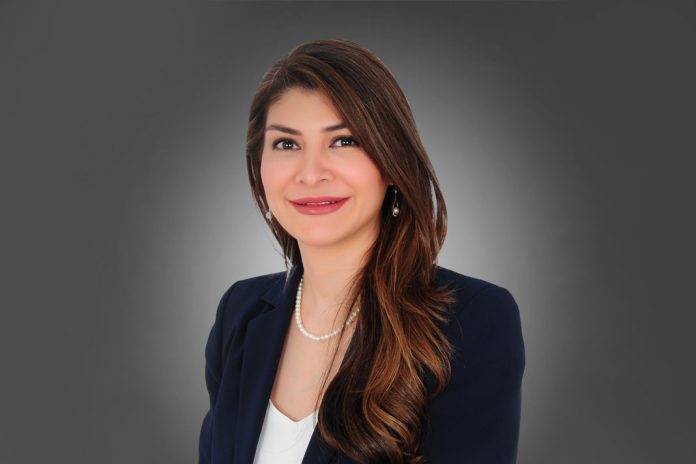The MENA region is quickly advancing to be a more inclusive and diversified society with women participating in and leading several sectors. Farah Baig speaks to the Head of Treasury at Gulf International Bank B.S.C., Maisa Al-Haddad – an exceptional leader with over 20 years of experience in the banking sector.
“I’ve learned that a leader is only as successful as the team they lead,” says Maisa Al-Haddad. “The main objective of any leader should be to look after their team members and support their personal and professional goals.”
Ms. Al-Haddad initially graduated and completed her training requirements to be a Chemical Engineer – a field that she is still very attached to. “However, entering the field was the first career challenge I had to face as a woman. Women might find it difficult being in certain sectors; however, I am positive that it is only a matter of time for a transformation to take place as we now see women leading sectors which we did not expect to see them in just a decade ago,” she says.
Leveraging the analytical and mathematical skills that she had gained over the years, Ms. Al-Haddad pursued her Master’s degree in International Securities, Investment, and Banking, from the University of Reading, UK.
As a part of the banking sector for the past 20 years, she has attempted to contribute to the economic welfare of the Kingdom. “During my career, I have observed that it is imperative that a leader gets acquainted with many leadership styles. As you climb the corporate ladder your management style will focus more on strategic leadership of individuals and teams,” she says.
“I think the lead-by-example style can deliver the best outcome for the team and the shareholders. Having said that, I sincerely believe that adopting one leadership style might not prove practical as change is the only constant,” she adds.
To stay up-to-date with the best practices in the sector, Ms. Al-Haddad adopts a number of strategies rooted in personal development – a factor that she believes should be a priority in professionals’ lives. “Investing in yourself and developing your skills with further studies is essential for you to flourish in your field. I personally value education and continuous learning and pursued several post graduate programmes, including the ‘Oxford Executive Leadership programme’ from Saïd Business School, University of Oxford, and ‘Sustainable Finance’ from the Cambridge Institute for Sustainability Leadership, University of Cambridge,” she states.
“Besides personal development, you must build your network and connect with industry experts for new information and a fresh perspective,” she adds.
As for balancing personal and professional responsibilities, she has a very different approach. “Young women who are interested in entering the investment field often ask me this question. I don’t balance responsibilities, but rather prioritise them,” she says.
“For instance, if I’m working on a transaction during London hours, that will be my priority. Similarly, if one of my children is not feeling well, he will be my prime concern after delegating my work responsibilities,” she explains, adding that her colleagues and family have been vital for the success of this approach.
Being a leader, Maisa believes that effective communication is the most important factor in teamwork as it keeps team members informed, develops mutual trust, boosts morale, and helps employees stay engaged in the workplace.
“The reality is that those closest to the leader will determine the level of success of the leader. The leader should lead the team to maximise the shareholders’ interests and achieve corporate values and missions while boosting their team’s self-esteem. If they are successful in doing so, it’s amazing what they can accomplish,” she concludes.


































